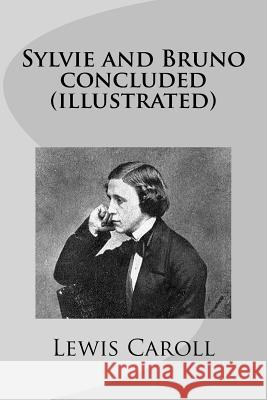Sylvie and Bruno concluded (illustrated) » książka
Sylvie and Bruno concluded (illustrated)
ISBN-13: 9781542499378 / Angielski / Miękka / 2017 / 350 str.
Sylvie and Bruno is a novel written from 1867 by Lewis Carroll. Roman in which he explores just about all combinations of humor and nonsense while dealing with his favorite themes: logic and its paradoxes, the gap between signifiers and signifieds. Sylvie and Bruno is the third and last novel by Lewis Carroll, published in two volumes: Sylvie & Bruno in 1889; Sylvie & Bruno concluded in 1893. Two stories intersect: one centered on the fantasies of childhood and the other on the amorous or political intrigues. Situations and events follow one another in numerous processes of great originality: a journey from time to time, logical traps, meticulously described wacky inventions (bathtubs for standing baths, boots for horizontal time, etc.) PREFACE. I must begin with the same announcement as in the previous Volume (which I shall henceforward refer to as "Vol. I.," calling the present Volume "Vol. II."), viz. that the Locket, at p. 405, was drawn by 'Miss Alice Havers.' And my reason, for not stating this on the title-page-that it seems only due, to the artist of these wonderful pictures, that his name should stand there alone-has, I think, even greater weight in Vol. II. than it had in Vol. I. Let me call especial attention to the three "Little Birds" borders, at pp. 365, 371, 377. The way, in which he has managed to introduce the most minute details of the stanzas to be illustrated, seems to me a triumph of artistic ingenuity. Let me here express my sincere gratitude to the many Reviewers who have noticed, whether favorably or unfavorably, the previous Volume. Their unfavorable remarks were, most probably, well-deserved; the favorable ones less probably so. Both kinds have no doubt served to make the book known, and have helped the reading Public to form their opinions of it. Let me also here assure them that it is not from any want of respect for their criticisms, that I have carefully forborne from reading any of them. I am strongly of opinion that an author had far better not read any reviews of his books: the unfavorable ones are almost certain to make him cross, and the favorable ones conceited; and neither of these results is desirable. Criticisms have, however, reached me from private sources, to some of which I propose to offer a reply. One such critic complains that Arthur's strictures, on sermons and on choristers, are too severe. Let me say, in reply, that I do not hold myself responsible for any of the opinions expressed by the characters in my book. They are simply opinions which, it seemed to me, might probably be held by the persons into whose mouths I put them, and which were worth consideration.
Zawartość książki może nie spełniać oczekiwań – reklamacje nie obejmują treści, która mogła nie być redakcyjnie ani merytorycznie opracowana.











